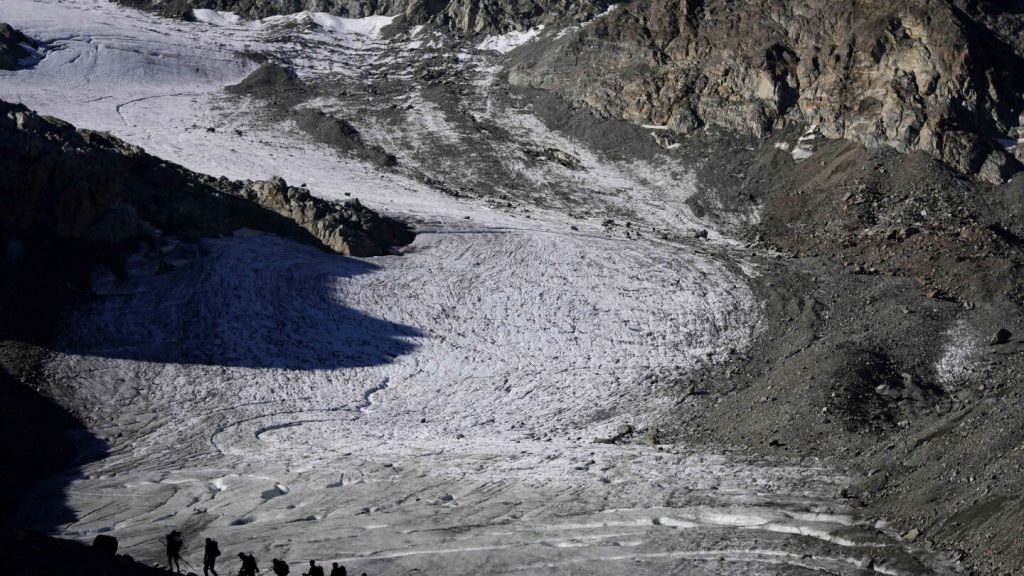Austrian glaciers are receding at a rapid pace, with experts predicting that the country will be largely ice-free in 40 to 45 years. The Austrian Alpine Club reported that of the 93 glaciers measured, all but one had receded in the past year. The average retreat of the 79 glaciers measured in consecutive years was 23.9 meters, the third-highest figure of shrinkage in the past seven years. The largest retreat was seen in Austria’s biggest glacier, the Pasterze, which shrank by 203.5 meters, setting a record for that glacier.
Experts at the University of Graz’s geography institute, who lead the club’s glacier measurement service, stated that the disappearance of Austria’s glaciers is now unavoidable. They explained that the process of forming snow reserves to stabilize glaciers takes decades, and that time has run out. While there may be some remnants of glaciers in shadowed locations in the future, the experts predict that in 40 to 45 years, Austria will be mostly ice-free. They attribute the continued existence of Austria’s glaciers to ice reserves from the past.
The main culprit for last year’s significant glacier retreat was identified as a late but very long and warm melting period in 2023. While the average figure for glacier retreat in 2022-2023 fell short of the record set in the previous year, the report noted that two glaciers experienced retreats of over 100 meters – the Pasterze and Tyrol province’s Rettenbachferner glacier. Only one glacier remained unchanged in length in the past year. Glaciers are formed as snow and ice compact over centuries and then flow slowly over land, making their melting a visible sign of human-caused climate change.
Neighboring Switzerland has also seen significant glacier volume loss, with experts reporting a 4% decline in total glacier volume in 2023, on top of a 6% drop in 2022. The rapid retreat of glaciers around the world is cause for concern among climate scientists, as it is a clear indication of the impact of human-induced climate change. The accelerating pace of glacier melt in Austria and other alpine regions serves as a stark reminder of the urgent need for global action to combat climate change and protect the planet’s vulnerable ecosystems.


